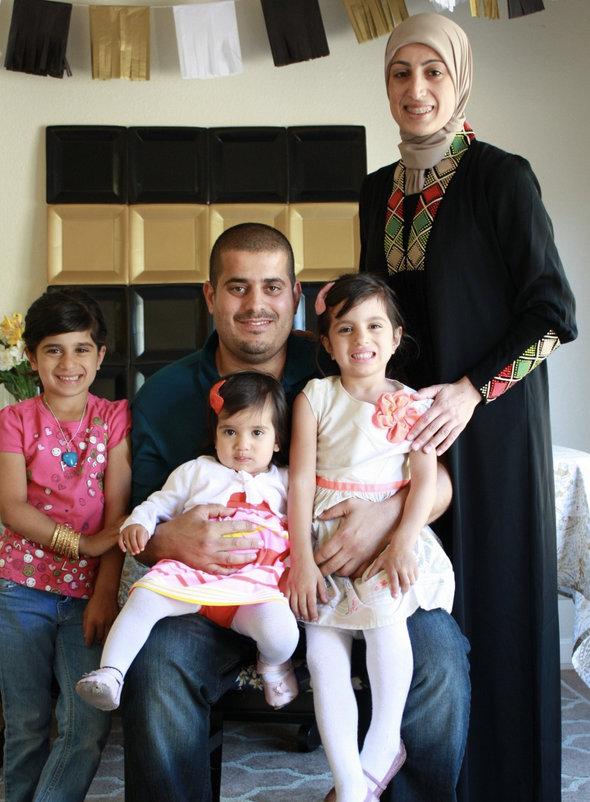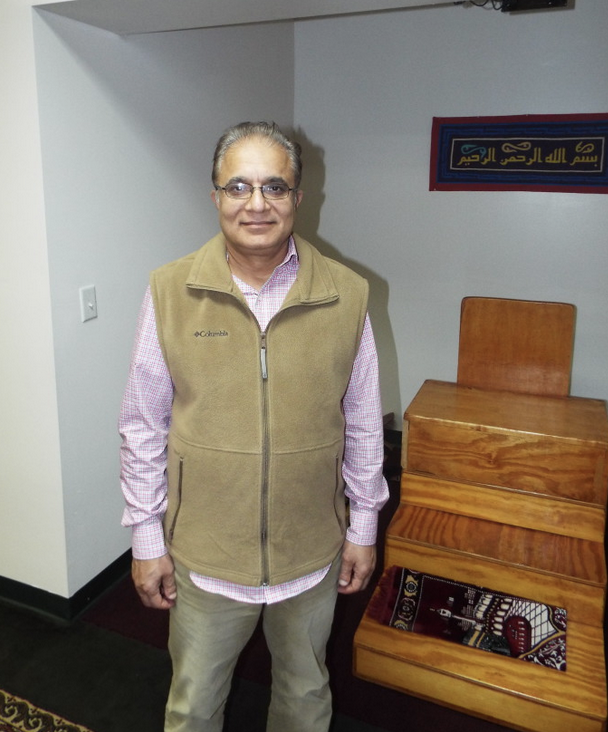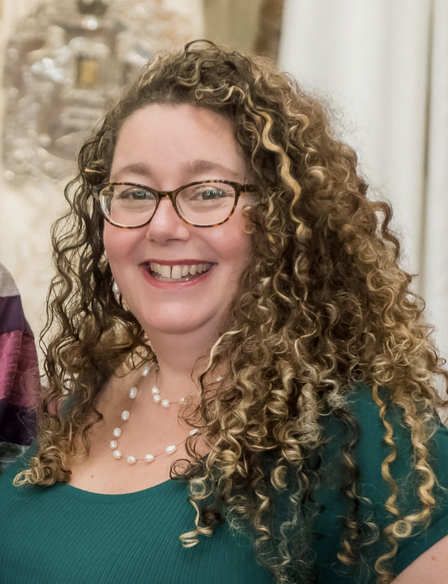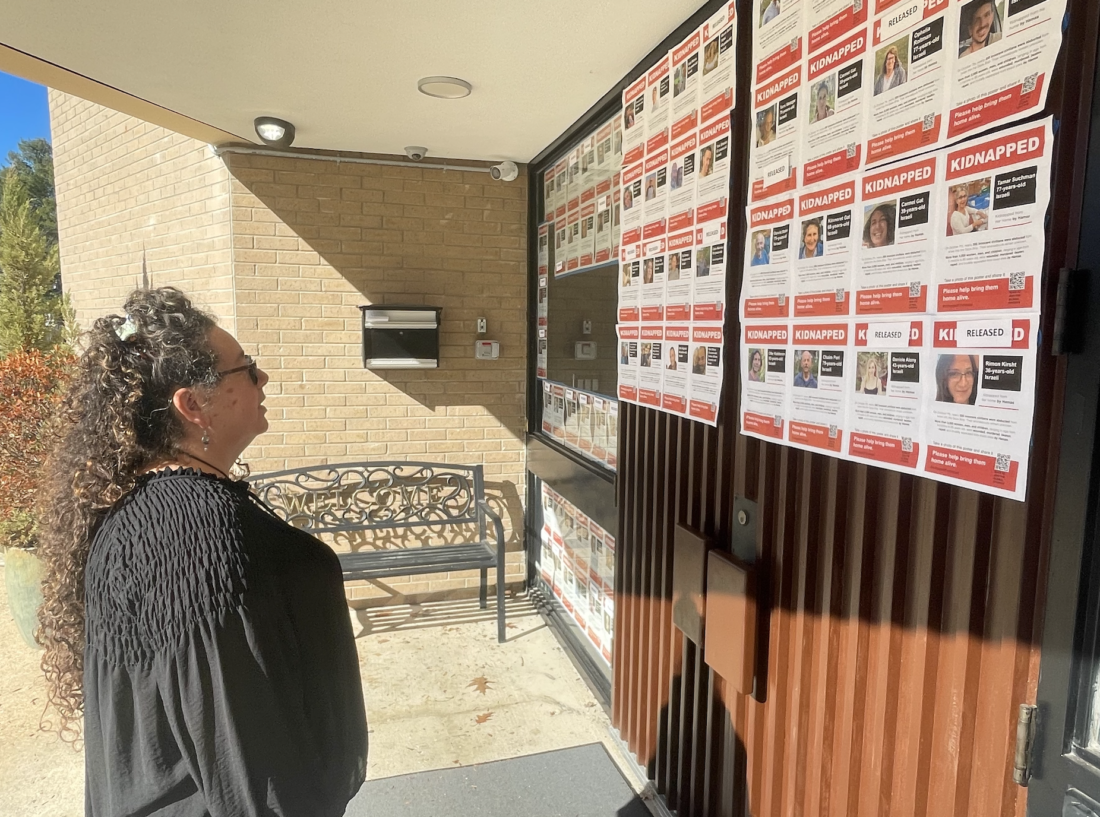More than 6,200 miles separate Asheville from the deepening war between Israeli and Hamas forces, but that doesn’t mean Western North Carolina residents aren’t affected by the tragedies playing out in Gaza and elsewhere. Whether it’s through family, friends or religious beliefs, the renewed onset of violence has impacted many people here.
“Regardless of where you stand on the conflict itself, it’s still really scary to see this much violence and division in the world,” says Stephen Herman, a 29-year-old Asheville resident who is ethnically Jewish. “People will often make assumptions about what I believe based on my ethnic or political background, but I think it’s important for everyone to remember that this is a complex issue, and at its core is two communities of people who are suffering. We need to be able to come together and support one another, not pick sides or put each other down.”
Like many others, Herman says he was shocked when he learned about the Oct. 7 surprise attack on several towns in Israel by Hamas, a militant Palestinian political group that the U.S. State Department considers a terrorist organization.

Amid the violence that followed that initial assault, says Herman, many of his friends and family have experienced fear that “has never been felt before at this magnitude.”
“While I no longer practice the faith, I am still very involved in the Jewish community, and I am proud of my heritage,” notes Herman. “With the continuing violence in the Middle East, as well as the rise in antisemitism here in the States, many of my friends are scared to even leave their homes. No one should ever feel like that.”
Black Mountain resident Zain Shabati, who was born in Gaza City, says he has lost contact with many of his friends and family in the Palestinian enclave, which is controlled by Hamas.
“Many of the people I know still living in Gaza, who I was speaking with daily in August and September, have gone completely silent. I don’t even know if they are alive,” says Shabati. “That is the problem with wars like this: It is the everyday people who are suffering the most, not Hamas or the Israeli government. Regular Palestinians — and Israelis, I would imagine — don’t want all of this violence.”
A climate of fear
While several local groups have offered support for individuals who have been impacted by the war, increased reports of threats against both Jewish and Muslim communities nationwide have sparked concern among local religious leaders.
The Anti-Defamation League, an international Jewish advocacy group, cited a 388% increase in incidents of antisemitic harassment, vandalism and assault between Oct. 7 and 24, compared with the same period last year. Also during that time, the nonprofit Council on American-Islamic Relations said it received 774 reports of bias incidents and requests for help from Muslims across the U.S., a 182% jump compared to similar periods in 2022.
Rabbi Batsheva Meiri of Congregation Beth HaTephila in Asheville says the synagogue has had to bolster security due to safety concerns.
“The increase in antisemitic violence across the country has caused the FBI and the [Asheville Police Department] to put us on high alert, and we have had to tighten security at all our events,” says Meiri. “There is always someone with eyes on the door keeping track of who is coming in or out. Since the Pittsburgh shootings in 2018, we’ve had to have a contract with the Buncombe County Sheriff’s Office and APD for off-duty officers. It’s sad, but it is our reality.”
On Oct. 12, an Asheville man was arrested and charged in connection with a series of antisemitic email threats sent to a local synagogue, according to an APD report. Meiri also notes that she has been personally threatened for speaking out about the war.
“The increase in violence has forced us to be very vigilant in discerning what is a real threat and what is just scary for us,” says Meiri. “We are having to train ourselves not to cower in our homes when we are afraid because that is what [those harassing the Jewish community] seek to do.”

That same fear is also being felt in the local Muslim community. “While we have not personally dealt with any cases of Islamophobia since the war began, it is still very scary for our congregants,” says Khalid Bashir, board president of the Islamic Center of Asheville. “Just recently, three Palestinian students were shot in Vermont, and a few weeks ago, a 6-year-old Palestinian American boy was stabbed to death in Chicago. While Asheville is a far more tolerant environment, who’s to say that couldn’t happen here?”
Although representatives of both the APD and the Buncombe County Sheriff’s Office have told Xpress that they know of no overtly violent local incidents related to the war, Shabati says he’s been treated differently since the fighting erupted. In one instance, while walking with his family in downtown Asheville, he says a homeless person spat at his feet and called him a slur.
“It really baffles me that people are OK with treating me or other Muslims like we are scum,” says Shabati. “I am not a part of Hamas. I don’t support the manner in which they have chosen to represent Palestine. Yet because of my skin tone and because my wife wears a hijab, we are treated like terrorists.”
Shabati believes that making generalizations or assumptions about the beliefs of any group is dangerous and harmful for the community as a whole. “I think, with this war specifically, people assume that every Arab person must support the actions of Hamas, just like every Jewish person supports every action of the Israeli government. Neither is a fair assumption, and that kind of thinking leads to violence and division.”
Basic human needs
Against that backdrop in both the Jewish and Muslim communities, Rochelle Reich, executive director of Congregation Beth Israel, stresses the importance of mutual support.

“A big theme for our congregation has been providing people with the opportunity to process what is happening,” says Reich. “The first week after the war broke out, we helped to organize a community vigil. It was not designed to be a rally, nor do I think it came across that way. It was very much a community gathering focused around being together as people and just, collectively, being able to grieve and process together.”
Both Meiri and Bashir say their respective organizations remain committed to supporting their congregants and those impacted by the war. Meiri notes that her congregation has raised funds for her to travel to Israel to provide aid and support.
“We will be assisting with rabbis in Jerusalem who are providing support to displaced people, people who have family who are held captive, and also those who have lost friends and family,” Meiri explains, adding, “We’re going to be leading prayer services and vigils as well.”
Closer to home, Meiri says that every Tuesday through Thursday, several members of her congregation come to the synagogue and place calls to the White House advocating for the release of the hostages taken by Hamas. “We are hoping that our actions will keep [the hostages] in the forefront of everybody’s minds. The news cycle forgets, our leaders forget, so it’s important for there to be a voice that says, ‘We have not forgotten you.’”
Bashir, meanwhile, says the Islamic Center is organizing a fundraiser to support humanitarian efforts in Gaza. The organization also has hosted several events designed to give non-Muslim community members a historical perspective on the long-running conflict.
“Our goal with the community events is to educate people on the background of the war in Palestine and Israel,” says Bashir. “If people are educated, it opens the door for more civil conversations, rather than people yelling at one another.”
All together now
Meiri, too, believes that finding middle ground and having candid discussions would be beneficial. “This war is such a nuanced topic that conversations around it can often be difficult,” she points out. “This is not just an Oct. 7 thing: It is hundreds of years of rising and falling conflict. Still, it would be nice if people wanted to have a conversation instead of sticking out [their tongues] and saying, ‘You’re on the wrong side of this!’”
Reich concurs, while also encouraging people to remember that Americans’ perceptions of life in Israel may be far different from what it’s like to actually live there. She recalls a story she heard from an Israeli reporter at a conference more than 10 years ago.
“The reporter, who at the time was covering the Israeli election, listed all the topics that were driving voters to the polls. He listed the typical things you would expect, such as the economy, housing, social services, but he never mentioned the peace process. Now, if you asked 1,000 Jewish Americans what the No. 1 issue in Israel is, they would probably mention the conflict. However, for people living there, peace seems so far out of reach that they no longer believe that there is any political party that can make it happen.”
Reich herself has never lived in Israel, and the only thing she claims to understand concerning the conditions there is that she will never fully understand them.
“I had the epiphany that living in Israel and dealing with what it is like to live there, from a safety perspective, is completely incomprehensible to Americans,” she explains. “We live in such different worlds that trying to insert our opinions or pretend that we know what’s best is not a good idea.”
For his part, Herman believes that conversations regarding the war should focus on the needs of the people who live in the region, rather than on dogma or revenge.
“I will not pretend that I understand the nuances of the war between the Israeli and Palestinian people,” says Herman. “However, what I do know is that there are innocent people who are dying, caught in the crossfire. Those people, whether they are Jewish, Muslim, Israeli or Palestinian, do not deserve to be dying. I think until we can agree on that, we won’t be able to make any progress.”



This is an interesting article and I appreciate the attempt to remain objective about a volatile situation. Regarding the comment about “contextualizing” I think there is a tendency to gloss over the extensive history of conflict in the Israel- Palestine relationship. The attack by Hamas did not come out of the blue, as some would have us believe. Context IS important. Finally, the last remark by Stephen Herman (as quoted in the article) reminds us of our humanity and vulnerability. Until we accept that EVERY PERSON ON EARTH deserves to have a peaceful and fulfilling life, the killing will continue. THANK YOU, MOUNTAIN X for taking on this issue.